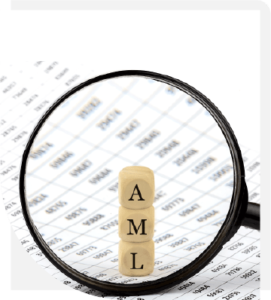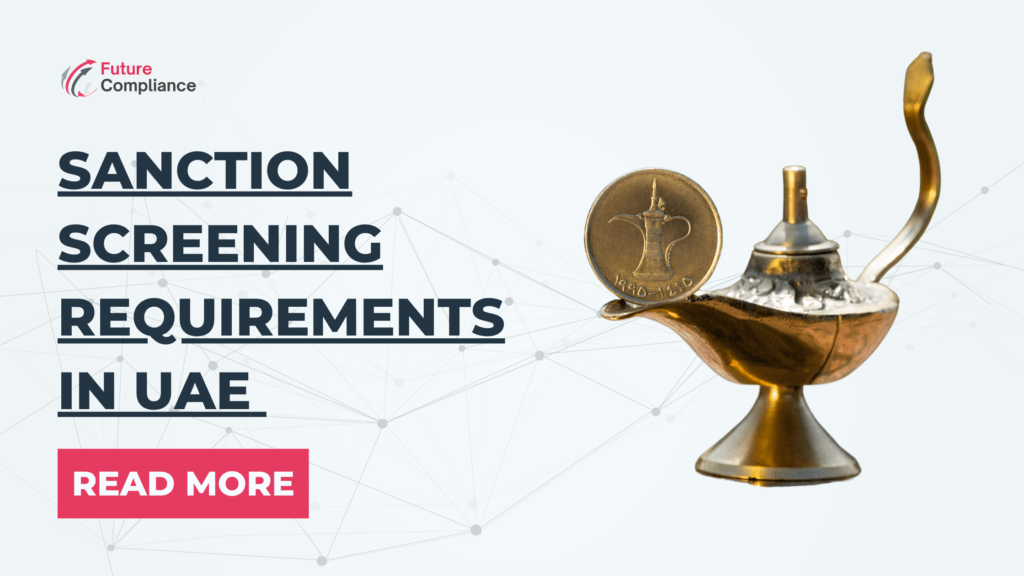Money laundering is a serious crime that allows criminals to hide illegal funds and expand their criminal pursuits. It fuels illegal activities such as drug trafficking and terrorist financing, making it easier for terrorists and cartels to operate. These hidden transactions help criminals achieve their unlawful purposes without being caught. Unfortunately, weak anti-money laundering regimes in several countries allow them to continue occupying money obtained through illegal means.
The economic consequences of money laundering are especially damaging in developing countries with fragile financial systems. These nations experience financial disruptions, rising corruption, and a loss of investor confidence. Over time, businesses fail, and people struggle due to inflation and job losses. The social consequences are equally severe, as essential services decline and trust in governments weakens. The significant implications of unchecked laundering threaten global stability. If left unchallenged, its effects will continue to harm economies and societies worldwide.
The Alarming Social Consequences of Money Laundering
Money laundering does more than harm the market—it shifts economic power from honest citizens to criminals who manipulate the system. These launderers use hidden funds to expand illegal operations, influence political parties, and take control of businesses. Over time, they create a virtual takeover of legitimate sectors, making illegal activities harder to detect. In response, the government enforces stricter AML regulations, increasing costs for law enforcement. As a result, the repercussions fall on ordinary citizens, while criminals continue growing wealthier and more powerful.
The negative consequences of money laundering deeply impact society and the world community. To fight back, authorities prioritize law enforcement, diverting funds from the healthcare sector and vital services. This forces the government to take preventive measures, cutting public spending and reducing investments in public welfare. These challenges leave vulnerable communities struggling with fewer resources and limited opportunities. If unchecked, money laundering will weaken economies, widen inequality, and destroy trust in institutions.
The Severe Economic Consequences of Money Laundering
Money laundering is a growing persistent problem that threatens global economic growth. It allows launderers to disguise illegal funds, making it easier to manipulate financial markets and exploit emerging markets. These criminals target developing markets in their development phase, using loopholes to expand their reach. As illicit money flows through Financial Institutions (FIs) and Designated Non-Financial Businesses and Professions (DNFBPs), the overall economy suffers from instability and reduced investment confidence.
The impact extends to key nation-development sectors like real estate and infrastructure, where fraudulent investments slow productivity and worsen corruption. Money laundering fuels crime, diverting resources away from economic development and damaging long-term growth. As dirty money continues to spread, legitimate businesses struggle to compete, leading to economic stagnation and a weaker financial system.
The Widespread Macroeconomic Effects of Money Laundering
- Weaker banks struggle to maintain trust as illegal funds pass through financial institutions, making them vulnerable to collapse.
- Corruption increases as money launderers bribe officials, leading to financial mismanagement and instability.
- Increased crime flourishes when illicit money fuels illegal businesses, making law enforcement efforts less effective.
- Economic instability worsens as dirty money circulates, causing sudden distortion in major markets and unpredictable financial shifts.
- Discourages foreign investments because international businesses hesitate to invest in a country with weak financial regulations.
- Reputational risks damage the nation’s credibility, leading to a loss of trust from global financial organizations.
- Widespread tax evasion results in the loss of tax revenue, reducing funds for public services and economic development.
- International sanctions may be imposed on nations that fail to prevent money laundering, cutting them off from global trade.
- Depreciation of the official currency occurs as illegal transactions manipulate exchange rates, devaluing national wealth.
Money laundering activities create an unpredictable flow of cash, making it difficult to track a traceable source of funds. This uncertainty leads to sudden dramatic fluctuations in exchange rates and international capital flows, destabilizing the economy. As a result, financial institutions struggle to maintain stability, while money demand experiences frequent changes. The adverse results extend further, affecting growth rates, reducing tax revenues, and worsening income distribution. These distortions impact crucial economic concepts, making long-term development more challenging.
The Devastating Impact of Money Laundering on Developing Countries
Money laundering causes massive disruption in developing countries, weakening their economy and making them more vulnerable to terrorism and criminal activities. These nations often have fragile financial systems that cannot withstand the severe impact of illicit transactions. Corrupt networks take advantage of weak security measures, allowing terrorist financing to thrive. The damage extends beyond finances, as social stability declines and people with a weaker social status suffer the most. The overall economic impact worsens when dirty money flows into markets, manipulating investments and reducing trust in financial institutions.
The destruction caused by money laundering also affects a country’s financial stability, making it harder to sustain growth. Criminals with mala fide intentions exploit weak regulations, worsening the economic condition and increasing the effect of illegal operations. Businesses struggle, investors withdraw, and governments lose crucial funding due to corruption. Ultimately, these factors create a cycle of instability that keeps developing countries trapped in financial distress.
-
Global Consequences and the Impact on Foreign Investment
A developing country known for money laundering activities or terrorist funding faces a negative impact on its economy and growth. Foreign financial institutions (FIs) hesitate to engage in transactions with enterprises operating in money laundering heavens due to concerns over compliance risks. This leads to higher costs for businesses and increased scrutiny on their ownership and control systems. As a result, even legitimate businesses suffer, struggling to access world markets and attract foreign private investments.
Additionally, weak enforcement of AML and CTF policies creates hardships for countries seeking foreign state help or financial aid. Their eligibility for funding and international support becomes restricted, making investments less attractive to global partners. Organizations operating under lax regulations often lose credibility, reducing the chances of development and financial stability. This cycle continues to weaken global trust, leaving affected nations with limited economic opportunities.
-
The Alarming Surge in Corruption and Crime
Countries known as money-laundering heavens attract criminals who exploit weak laws and selective enforcement of anti-money laundering measures. Corrupt management and employees in financial institutions help in money laundering activities, making it difficult to track illicit transactions. Weak AML and CTF regulations, combined with limited sanctions, allow illegal networks to thrive. Bribery becomes a common tool, influencing central institutions, police officials, and supervisory authorities to overlook violations. Even legislatures and prosecutors may turn a blind eye, making enforcement weak and ineffective.
With burdensome seizure provisions, authorities struggle to recover illicit funds, reducing the scope of justice. Criminals manipulate profit margins from financial frauds, keeping their illegal operations running. Courts often face challenges in convicting offenders, while accountants help disguise financial flows. Without stronger policies for combating the financing of terrorism, the risk of organized crime and economic instability continues to rise.
-
Corporate Sector
Shell companies play a major role in money laundering, allowing criminals to mix illegal funds with legitimate funds to avoid detection. These entities give the appearance of commercial existence, but they are actually controlled by illicit networks. Many front face companies are not just focused on booking profit but also on hiding an illegally occupied sum. By disguising unexplainable shares of income, money launderers gain an unfair share in various industries, influencing key sectors of economies worldwide.
The misuse of investments in legit companies creates monetary instability and leads to an improper allocation of resources. This process also results in taxation loopholes, further depriving countries of essential revenues. As money laundering spreads across economies, it weakens financial trust and reduces business transparency. Without strict oversight, these illicit financial flows continue to disrupt legitimate businesses and harm overall economic growth.
-
Fragile Financial Institution
Money laundering creates serious negative consequences for financial institutions, leading to reputational risks and loss of public trust. When banks face allegations of involvement in criminal activities or terrorist financing, their reputation gets distorted, causing negative publicity. This results in customers, depositors, and borrowers withdrawing their funds, weakening the entire financial sector. The crisis escalates as investors lose confidence, affecting business relationships and market stability. Additionally, operational risks, legal risks, and concentration risks become interrelated, increasing financial costs for affected institutions. This widespread damage impacts the entire country, reducing the soundness of its economy.
-
The Impact of Privatization Initiatives
Money launderers and criminal organizations take advantage of privatization to gain control over state-owned businesses. Instead of legitimate buyers acquiring these assets, criminals use illegally occupied funds to outbid fair competitors. Once invested, these funds strengthen their potential to expand criminal activities, further destabilizing economies. This process leads to a negative impact on growth, as illegal capital flows distort fair competition and weaken financial integrity in many countries. Money laundering in privatization not only harms industries but also increases corruption, making economic recovery more difficult.
The Critical Benefits of a Strong AML/CTF Framework
To reduce the risks of money laundering, governments and financial institutions must implement a robust framework that strengthens oversight. Strong AML and CTF programs help detect suspicious transactions effectively, preventing criminals from exploiting financial systems. The benefits of such measures include improved transparency, better risk management, and enhanced global trust in financial operations.
-
Strengthening the Stability of Financial Institutions
Money laundering poses serious financial risks to financial institutions, increasing the chance of fraud and the violation of laws and regulations. Weak internal controls make it easier for criminals to carry out the execution of criminal activities without detection. To reduce these threats, strong banking practices are essential, ensuring that institutions follow strict compliance measures. The AML and CTF regime enforce policies that help detect and prevent illegal transactions, keeping financial systems secure.
The use of Customer Due Diligence (CDD) and Know Your Customer (KYC) processes is critical in identifying high money laundering risk. A strong framework acts as a risk management tool, lowering the probability of damage to organizations due to fraudulent activities. These protective measures strengthen financial stability, ensuring that banks and businesses remain resilient against economic threats.
-
Driving Strong and Sustainable Economic Growth
Money laundering disrupts the economy by diverting illegally occupied funds into vicious investments instead of productive businesses. Criminal organizations manipulate financial systems by using illegal means to acquire high-value consumption assets such as luxury cars, real estate, art, antiques, and jewelry. These sterile investments do not generate additional products or contribute to the broader economy. Instead of being used for profit-making enterprises, these funds are transformed into hidden assets that do not align with customer’s needs or real economic growth.
Strong AML/CTF regimes act as hurdles to the execution of money laundering, preventing the misuse of statutory funds and directing further investments into productive avenues. When laundered amounts are redirected toward legally occupied funds, financial systems stabilize, enhancing overall productivity. A country’s response to financial crimes determines how well it can protect its economy from the negative impact of dirty money. By enforcing strict measures, governments can secure long-term development and a healthier financial environment.
-
Combating Corruption and Criminal Activities
A CFT institutional framework combined with robust AML/CFT regulations plays a key role in preventing criminal actions. These sturdy regimes ensure strict enforcement, making it harder for criminals and money launderers to hide illegally occupied funds. By treating bribery as a primary offense, authorities can reduce the ability of public officials to accept a bribe in exchange for favors. Effective AML programs act as a deterrent, discouraging underlying criminal acts by increasing the risk of detection.
Another essential strategy is the confiscation and seizure of proceeds from money laundering activities. Taking away these illicit funds leads to a loss of revenues for organized crime, directly reducing profits and eliminating incentives for further wrongdoing. The success of these policies depends on continuous monitoring and strong cooperation between financial institutions and law enforcement agencies to curb corruption and financial crime.
Final words
The socio-economic impact of money laundering activities weakens the economy and creates negative consequences for every country. To reduce these adverse effects, strong AML/CFT policies must be enforced. Proper implementation helps organizations stay compliant and prevent financial crimes. As an expert in the field, AML UAE provides strategies to overcome risks and strengthen regulations. Their efforts contribute to minimizing the economic impact and improving the social impact of financial security worldwide.
Frequently Asked Questions (FAQs)
1. How does money laundering affect the economy?
Money laundering disrupts economic stability by injecting illicit money into the legitimate financial system. This leads to liquidity problems, reduced government revenues, and discourages investors from funding legitimate businesses. It also increases the risk of economic instability and damages a country’s reputation.
2. What are the socio-economic impacts of money laundering?
The socio-economic impacts of laundering include increased crime, corruption, and the entry of criminal companies into the economy. It weakens development schemes, increases taxation, and harms human well-being by diverting public resources.
3. How does money laundering affect taxation and government revenues?
It reduces tax revenues by enabling businesses involved in criminal activities to evade taxes. This results in a loss of revenues, making tax collection more difficult for the government, forcing honest taxpayers to bear a heavier burden.
4. Can money laundering impact public health and social structure?
Yes, laundering contributes to rising healthcare costs by promoting drug trafficking and organized crime. It also affects the social structure, leading to inequality and unrest within societies.
5. How does money laundering affect businesses and trade?
Illegal financing allows criminals to monopolize markets and conceal their illicit origin of funds. This harms legitimate businesses, discourages fair competition, and causes negative reputation issues for a country’s financial sector.
6. What role does the UN Vienna 1988 Convention play in fighting money laundering?
The United Nations introduced the UN Vienna 1988 Convention, defining laundering as the conversion or transfer of illegally obtained funds to disguise their illicit origin. It also mandates international cooperation to combat financial crimes.
7. How does money laundering contribute to environmental and social issues?
Illegal investments lead to site degradation, increased dust pollution, and noise pollution in construction projects. Criminal networks exploit public services and weaken the legal financial system, affecting overall social stability.





